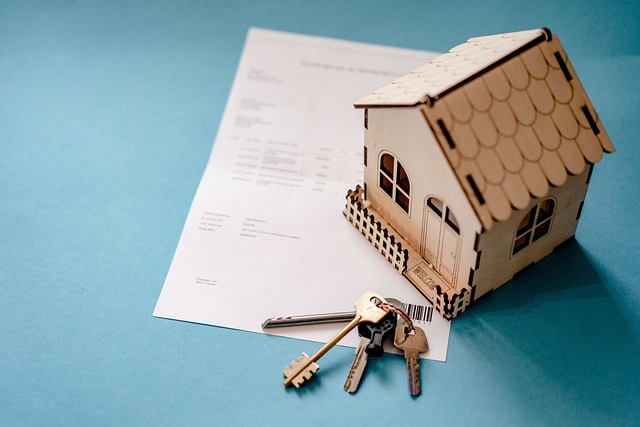See What Your Property May Be Worth Based on Market Data
Knowing your home's current market value is essential whether you're planning to sell, refinance, or simply curious about your investment. Understanding property values can help homeowners make informed decisions about renovations, insurance coverage, and potential equity. Today's technology and market data make it easier than ever to check your house price without hiring an appraiser, though results vary in accuracy and detail depending on the method you choose.

How to Check My House Price Online
The digital age has revolutionized property valuation with several reliable online tools that provide quick estimates. Most homeowners start their journey by using automated valuation models (AVMs) offered by real estate websites. These tools analyze public records, recent sales of comparable properties, tax assessments, and property characteristics to generate an estimated value. Popular platforms like Zillow, Redfin, and Realtor.com offer free valuation tools where you simply enter your address to receive an instant estimate. However, these automated valuations typically have a margin of error between 5-10%, making them useful starting points rather than definitive valuations.
What Factors Determine Property Values By Address
Several key elements influence your home’s market value beyond just its location. Square footage remains a fundamental factor, with homes generally priced per square foot based on local averages. The property’s age, condition, and recent upgrades significantly impact value—updated kitchens and bathrooms typically yield the highest returns. External factors matter too: school district quality, crime rates, proximity to amenities, and neighborhood development all influence desirability. Market conditions, including interest rates, inventory levels, and local economic factors, can cause values to fluctuate throughout the year. Understanding these variables helps explain why similar homes might have different valuations.
What Is My House Worth Right Now vs. Historical Value
Current property values represent a snapshot in time and can differ significantly from historical values. While national real estate appreciation averages around 3-5% annually, specific markets may experience dramatic variations based on economic conditions, development, and demand. Looking at your property’s value trajectory over 5-10 years provides meaningful context about its investment performance. Many online valuation tools allow you to view historical estimates alongside current valuations. This longitudinal perspective helps homeowners understand if their property is outperforming or underperforming compared to market averages, which can inform decisions about the optimal timing for selling or refinancing.
Professional vs. Online Home Value Assessments
While online tools provide convenient estimates, professional appraisals remain the gold standard for accuracy. Licensed appraisers physically inspect properties, analyzing condition, upgrades, and specific features that automated systems might miss. Real estate agents often provide complimentary Comparative Market Analyses (CMAs) that evaluate your home against recent comparable sales (“comps”) in your area. Tax assessments, while easily accessible, typically don’t reflect true market value as they’re primarily calculated for property tax purposes rather than sales potential.
How Accurate Are Online Home Value Estimators
Online valuation tools vary significantly in accuracy and reliability. These automated systems generally perform better in active markets with numerous comparable sales and standardized housing. However, they often struggle with unique properties, homes with unusual features, or those in areas with limited recent sales data. Research shows that leading estimators like Zillow’s Zestimate have a median error rate of approximately 2-8% depending on the market, which translates to potentially tens of thousands of dollars on a typical home. For improved accuracy, experts recommend consulting multiple online sources and comparing their estimates rather than relying on a single platform.
Understanding Home Value Estimation Costs and Services
Various options exist for determining your property’s value, each with different price points and levels of detail. Here’s a comparison of common home valuation methods:
| Valuation Method | Provider | Cost Estimation | Level of Detail |
|---|---|---|---|
| Online AVM Tools | Zillow, Redfin, Realtor.com | Free | Low-Medium |
| Real Estate Agent CMA | Local Agents | Free (with potential business relationship) | Medium-High |
| Professional Appraisal | Licensed Appraisers | $300-$600 | Very High |
| Home Inspection | Licensed Home Inspectors | $300-$500 | High (condition only) |
| Property Tax Assessment | Local Government | Free (public record) | Low |
Prices, rates, or cost estimates mentioned in this article are based on the latest available information but may change over time. Independent research is advised before making financial decisions.
Maximizing Your Home’s Current Market Value
If your property value comes in lower than expected, strategic improvements can boost market appeal. Focus on high-ROI upgrades like kitchen and bathroom modernizations, which typically recoup 70-80% of their cost. Simple cosmetic improvements—fresh paint, updated lighting fixtures, and improved curb appeal—often yield outsized returns compared to their relatively low investment. When considering major renovations, research the ceiling value for your neighborhood to avoid over-improving beyond what the market will support. Timing also matters; in many markets, spring listings tend to attract more buyers and potentially higher offers than winter sales.
Understanding your home’s current market value provides crucial information for financial planning and property decisions. While online tools offer convenient starting points, combining multiple valuation methods generally yields the most accurate picture. Whether you’re preparing to sell, refinance, or simply tracking your investment, regular value checks help ensure you’re making informed real estate decisions based on up-to-date market data.




